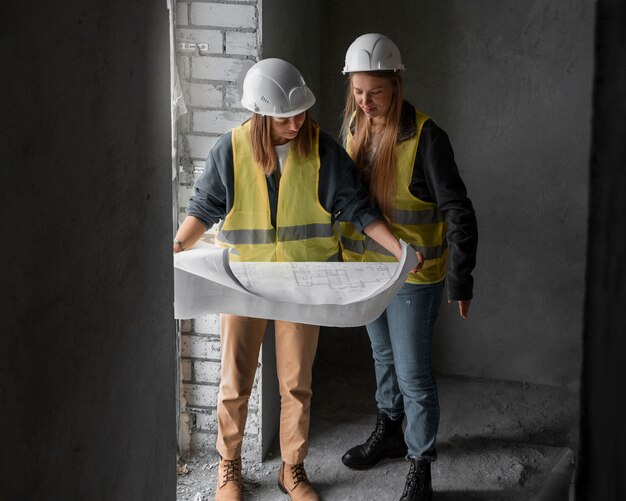Key Takeaways
- Concrete foundations offer unparalleled durability and longevity, which are crucial for any modern construction project.
- They provide robust resistance to natural disasters and environmental conditions.
- Cost-effectiveness and low maintenance make concrete ideal for residential and commercial buildings.
- Enhancements in technology and materials continue to advance the effectiveness and sustainability of concrete foundations.
The Importance of a Strong Foundation
Any construction project requires a solid foundation, whether a towering skyscraper or a cozy suburban home. The base of any structure is crucial for its overall stability and longevity. A weak foundation can lead to severe issues such as cracks, uneven settling, and even structural failure over time. Therefore, choosing a material that promises durability and reliability is essential. Concrete foundations are lauded for their robustness and have become popular among builders and architects due to their extensive benefits and proven track record. For those looking to read more about concrete foundations, they offer numerous advantages that go beyond just stability.
Durability and Longevity
Concrete is often selected as a foundation material due to its exceptional durability. Concrete comprises natural materials like sand, gravel, and limestone, which are abundantly available and environmentally friendly. Concrete can last for centuries with the proper care and maintenance. The material’s natural durability and ability to withstand damage make it a perfect option for durable foundations. Historical structures with concrete foundations that have stood the test of time are a testament to the material’s resilience, making it a reliable option for modern-day construction projects that aim to endure for generations.
Environmental Resistance
Concrete foundations are also revered for their resistance to various environmental factors. They can withstand severe weather like heavy rainfall, strong winds, and extreme heat, making them particularly useful in regions susceptible to natural calamities such as earthquakes and floods. Unlike other materials that might degrade or weaken over time, concrete maintains its integrity under harsh conditions. Its moisture resistance prevents common issues that can compromise a building’s safety and habitability.
Cost-Effectiveness and Maintenance
Besides offering durability, concrete foundations are also cost-effective. While the initial investment is higher than other materials, the low maintenance costs and longevity balance the expenses over time. Concrete requires minimal maintenance to remain in excellent condition. Routine inspections are generally sufficient to identify minor issues that can be quickly addressed with simple repairs, avoiding costly overhauls. This economic benefit is particularly appealing in the long run, as it reduces the total cost of ownership. Homeowners and builders alike appreciate the financial advantages of using concrete for foundations, knowing that the material provides exceptional value for money. Concrete is a wise choice for large commercial builds and residential projects looking to maximize budget efficiency.
Technological Advancements
The construction industry is continually evolving, and so are the materials and techniques used within it. Recent technological developments have greatly improved the efficiency and durability of concrete bases. Innovations such as high-performance concrete, which includes additives that will enhance strength and durability, have been introduced to the market. These technological breakthroughs make concrete an even more attractive option for modern builds. Moreover, implementing advanced construction methods, such as prefabricated concrete components, has streamlined the building process, reducing construction time and costs. These advancements contribute to developing more resilient and sustainable structures, ensuring that concrete remains a preferred material in the construction industry.
Sustainability in Construction
As sustainability becomes a focal point in modern construction, eco-friendly concrete variants are rising. The construction sector is progressively adopting environmentally friendly techniques to reduce carbon emissions and enhance ecological sustainability. Advances in green concrete technology are positively impacting reducing carbon emissions. These ecologically conscious concrete materials use recycled parts. By choosing sustainable concrete options, builders can significantly decrease the environmental impact of their projects. It benefits the environment and meets the growing demand for green building practices among environmentally conscious consumers. Sustainability also offers long-term savings in energy and resources, as green buildings typically require less energy for heating and cooling.
Conclusion
Concrete foundations offer numerous benefits, from unparalleled durability and environmental resistance to cost-effectiveness and sustainability. These attributes make them a preferred choice for many construction projects, both residential and commercial. With ongoing advancements in materials and technology, concrete foundations are set to remain a cornerstone of modern construction. The future of construction lies in materials and techniques that promise longevity, sustainability, and resilience, and concrete is leading the way in this evolution. Concrete is a dependable and practical option for the foundation of any building, whether it is for residential or commercial purposes, offering long-lasting benefits.
Also Read: Discovering Home: Life on the 2800 Block of Southeast Colt Drive



